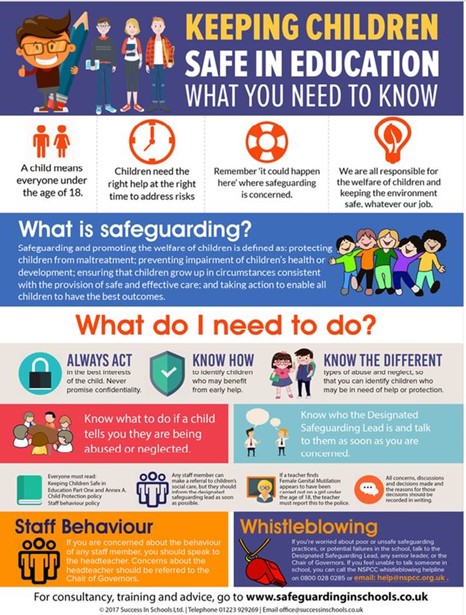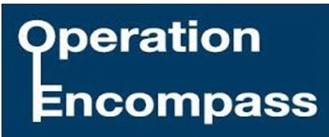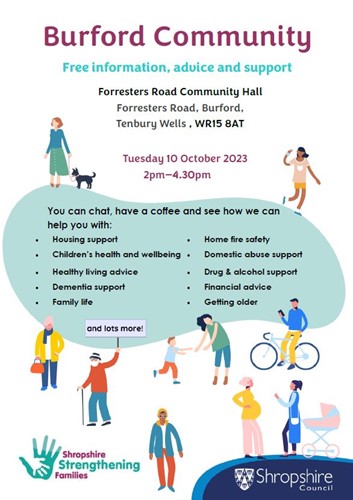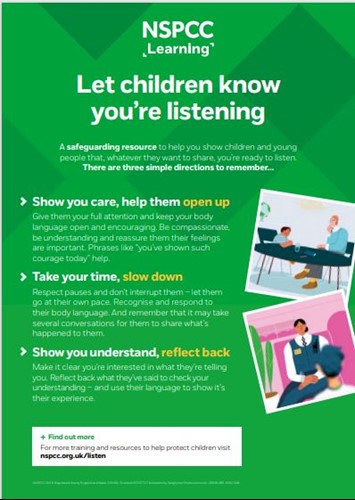Safeguarding
Schools are charged with maintaining a safe, supportive environment which protects the rights and needs of children at all times. School staff have regular contact with children and young people, and a responsibility to help to identify signs of children in need of additional support or protection accordingly.
Together, these responsibilities are called safeguarding.
At Clee Hill Community Academy, the safety and welfare of our children is at the heart of everything we do. We recognise our safeguarding responsibilities to include:
- creating a safe environment for children and young people through robust safeguarding practices;
- ensuring that adults who work in school, including volunteers, are able to work with children safely, and are properly trained and equipped to do so;
- teaching children and young people to stay safe; and maintaining an environment in which children feel confident to approach any member of staff if they have a worry or problem.

Safeguarding Procedures
As part of our safeguarding procedure, Clee Hill Community Academy follows the procedures set out by the Shropshire Safeguarding Children Board.
http://www.safeguardingshropshireschildren.org.uk/
New safeguarding arrangements are required by the Children and Social Work Act 2017 and Working Together to Safeguard Children 2018 and these arrangements set out how agencies should work together to safeguard children and promote their welfare.
We all have a duty to protect children and vulnerable adults. Abuse can be in many forms, including the following:
- Emotional abuse
- Sexual abuse
- Child sexual exploitation
- Neglect
- Physical abuse
Concerned about a child?
If you suspect that a child or vulnerable adult is experiencing any of the above or is at risk of being harmed, it's vital that you report it.
Your initial reaction may be to dismiss it and just hope it’s not true. But it’s vital that you report your concerns if you feel a child may be suffering. If you don’t report your concerns, it could mean that the neglect will continue.
Whether you are the child’s parent, relative, family friend, neighbour or a professional, don’t let anything stop you from protecting a child.
How do I report a concern?
If you think a child or young person is being harmed or at risk of being harmed you must contact the First Point of Contact (FPOC), Children's Services and tell them your concerns. Don't delay, please contact us straight away - we are here to help you.
Please report your concerns to FPOC on 0345 678 9021.
If you need to report concerns out of office hours then please contact the Emergency Social Work Team on 0345 678 9040 selecting option 1
If you are a professional reporting concerns then you will need to follow this up in writing using the Multi-agency Referral Form (MARF).
Alternatively, you can report your concerns online to the NSPCC via the 'NSPCC website'.
What is Operation Encompass?
Past serious case reviews, including the tragic case involving Daniel Pelka, have identified a failure in agencies sharing information with schools relating to domestic abuse. Clee Hill Community Academy is participating in Operation Encompass.
Further information can be found at: http://www.operationencompass.org/
Its purpose is to safeguard and support children and young people where a domestic incident has been reported from their home. Following such an incident, children will often arrive at school distressed, upset and unprepared. Operation Encompass will ensure that the appropriate schools are made aware early enough to support children and young people in a way that means they feel safe, supported and listened to.
Safeguarding pupils with SEND
Children with special educational needs (SEN) and disabilities can face additional safeguarding challenges. In order to get help when they the fear or experience abuse, we recognise and understand that children with SEND have significant additional barriers to overcome in comparison their peers. These include:
- Some children may not recognise the abuse
- Children might not be able to ask for help
- The child may rely on their abuser to meet their needs – making it even more difficult to speak out
- Parents and professionals may miss signs of abuse/neglect, mistaking them as part of a child’s condition
- Professionals working with children with SEND may not be trained to spot the signs of abuse and neglect
- Children with disabilities and their families may feel isolated or without support due to a limited number of accessible services, meaning they may not know where to find help
- Abusers may try to excuse their behaviour, blaming it on the difficulties of caring for a child with SEND
- Professionals who work to support parents’ ability to meet their child’s additional needs may overlook parental behaviours that are not adequate
- Child protection professionals might not have the specialised skills to properly communicate with the child, or to accurately assess or understand a disabled child’s needs.
At Clee Hill Community Academy, measures are in place to ensure the effective safeguarding of children with SEND. This includes:
- An inclusive curriculum that is relevant and appropriate to meet the needs of all learners.
- High quality social and emotional teaching through our whole school PSHE programme to teach children about how to keep themselves safe.
- Targeted social and emotional intervention programmes across to build positive relationships with staff - no worries
- Explicit teaching of all social and emotional skills through the PSHE and life skills curriculum
- Key adult methodology embedded into daily classroom practice
- Use of non-verbal methods of communication to communicate when help is needed
- Worry boxes/jars for children to communicate with staff using their chosen method
- ‘Check-in’ sessions' for the most vulnerable children
- Working in partnership with parents building close relationships with them to offer bespoke support
- Establish links with external agencies (e.g. Early Help) to enable rapid identification of changes in behaviour and presentation and enable effective early intervention
Data Protection/ GDPR
The Data Protection Act 1984 requires that any details held by the school should not be divulged without permission.
The school holds personal data about each child and has registered with the Data Protection Register the agencies with which information will be shared.
Julia Priscott is the Shropshire Gateway Educational Trust’s Data Protection Officer (DPO)










